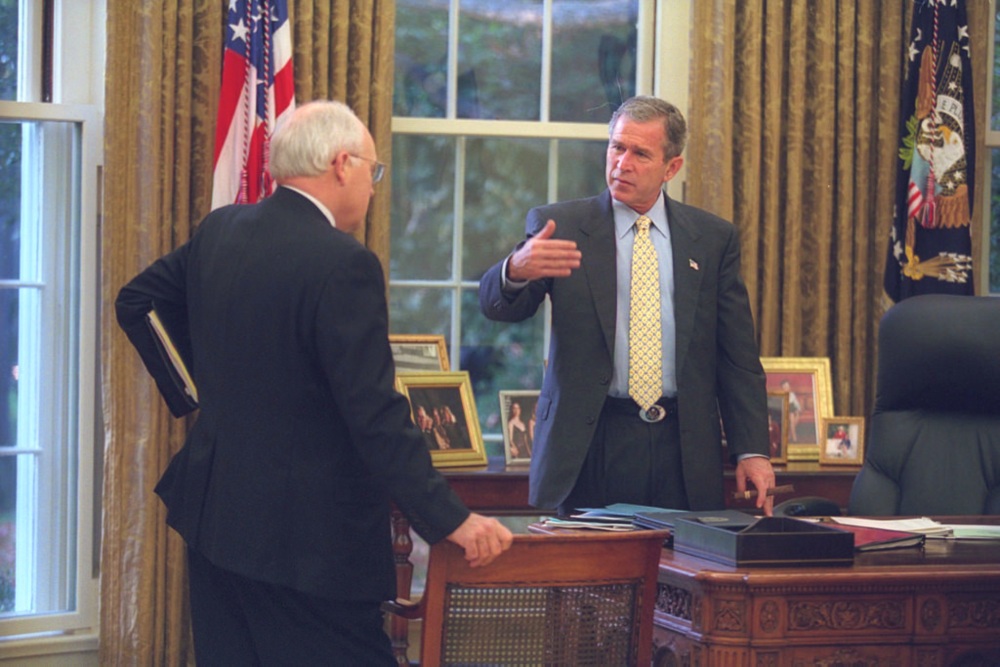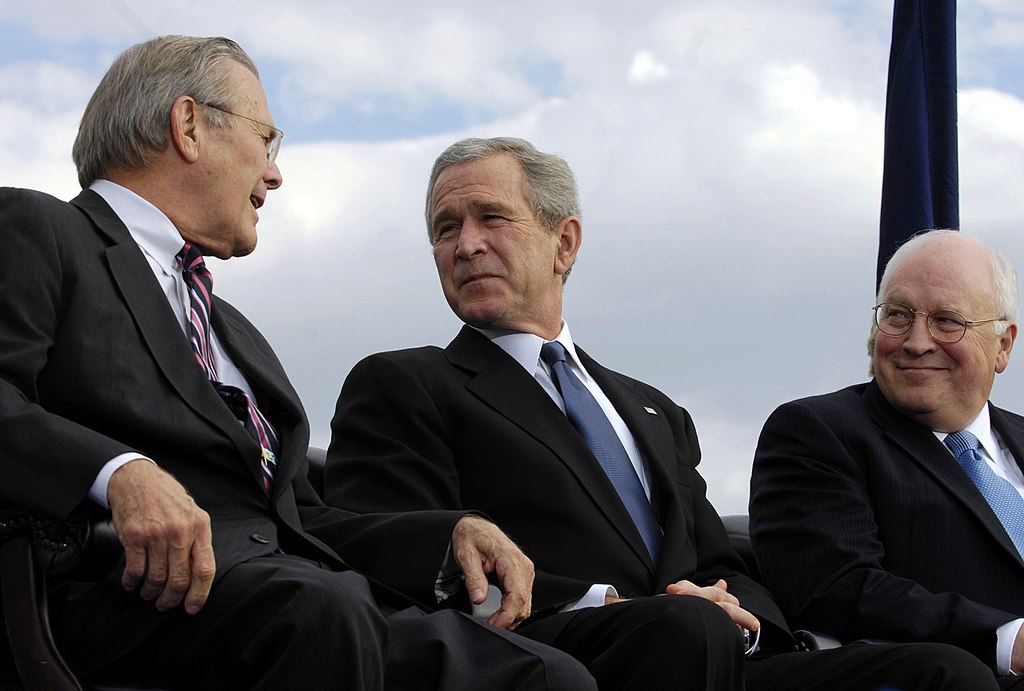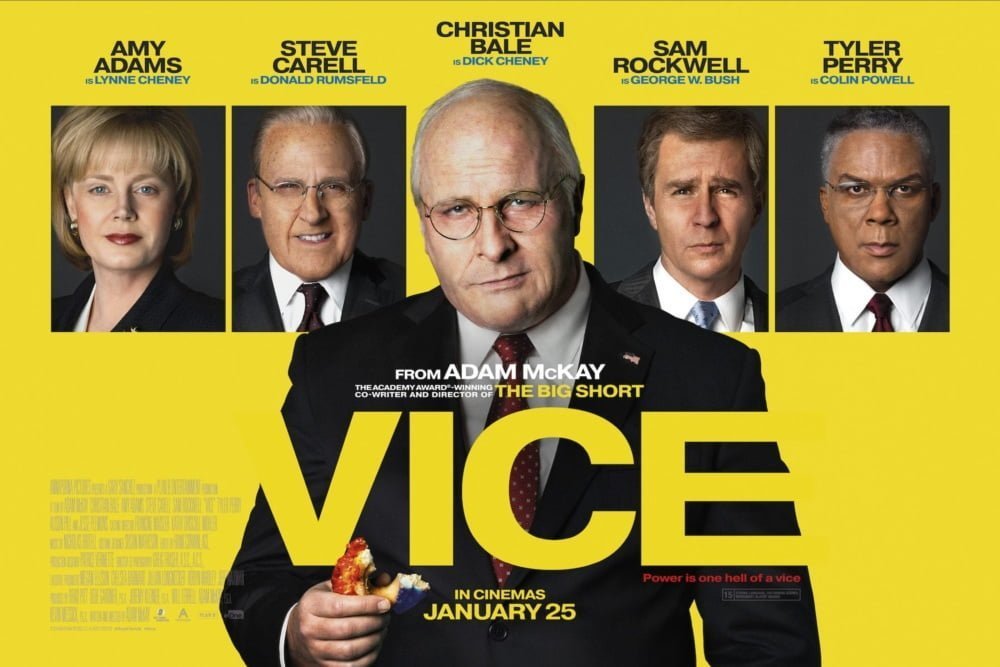Nico Padrón reviews the latest film from director Adam McKay, Vice, which attempts to provide a comic retelling of the life of one of recent political history’s most notoriously unscrupulous figures.
Vice follows the life of Dick Cheney from his early years in the Republican Party apparatus to his infamous role as Vice President in the Bush administration.
The film follows a nonlinear narrative that tries to piece together what is known about one of the most secretive figures of recent American political history.
Cheney’s ascent up the ranks of the US government bureaucracy was staggering. His career started as a mere clerk to Donald Rumsfeld, Nixon’s economic advisor. From there he moved on to White House Chief of Staff for President Ford.
During the Reagan years he served in the US House of Representatives, where he helped pass pro-business, anti-worker legislation. After that, he was appointed Secretary of Defence to George H.W. Bush’s administration during the first Gulf War.
Later, in the Clinton years, Cheney moved into the private sector, utilising the classic ‘revolving door’ available to members of the political elite. Despite having no business experience, he was made CEO of Halliburton, a US oil company that would later profit enormously from the second Iraq War.
Concentrating power
Until this point, Dick Cheney’s life story does not seem out of the ordinary. Just another member of the capitalist class – not a good person by any stretch of the imagination, but not a particularly noteworthy one either.
In fact, the movie toys with this idea by rolling the credits halfway through, as though what was to come later in his life – his role as Vice President to George W. Bush – never happened. Unfortunately, it did.
As VP to Bush Jr., Cheney concentrated all power in his hands. Using a series of loopholes and other manoeuvres, he ended up effectively in control of all presidential responsibilities and decisions.
It can be argued that Bush was never really in charge of the White House, but that he was just a puppet for Cheney to control. However, that’s not the whole story. By relying on the unitary executive theory of American constitutional law, he gained control of all branches and agencies of the executive and used them to extend his power.
Imperialist atrocities
 Cheney and Bush used 9/11 as an excuse to launch a fully-fledged imperialist invasion of Iraq. By outright lying as to the whereabouts of Al-Qaeda’s operators and claiming that Saddam Hussein had weapons of mass destruction, they convinced NATO forces to intervene too. Countless violations of the Geneva Convention and human rights abuses were committed in this ‘war on terror’.
Cheney and Bush used 9/11 as an excuse to launch a fully-fledged imperialist invasion of Iraq. By outright lying as to the whereabouts of Al-Qaeda’s operators and claiming that Saddam Hussein had weapons of mass destruction, they convinced NATO forces to intervene too. Countless violations of the Geneva Convention and human rights abuses were committed in this ‘war on terror’.
Director Adam McKay (The Big Short, Anchorman) defines Vice as a tragicomedy. Several reviewers go as far as saying the film is “riotously funny”. I must disagree. While it is true that the movie features several jokes and dark humour twists, the content of its story is no laughing matter.
Dick Cheney is responsible not only for perpetuating US imperialist atrocities, but also for exacerbating them. Some estimates put the death toll from the Iraq War as over one million people. The war destabilised the country and its neighbouring regions, with a devastating impact on the lives of countless people. This can still be seen today with the rise of Islamic State and other jihadi groups in the area.
No beliefs, only profits
 For that matter, the attempts to humanise Cheney by showing the viewer scenes of his private life – his devotion to his wife and his family – seem forced and deceiving. Dick Cheney was nothing more than bureaucratic vermin, uninspired and uninspiring, in charge of doing the dirty work for the big capitalists of the United States of America.
For that matter, the attempts to humanise Cheney by showing the viewer scenes of his private life – his devotion to his wife and his family – seem forced and deceiving. Dick Cheney was nothing more than bureaucratic vermin, uninspired and uninspiring, in charge of doing the dirty work for the big capitalists of the United States of America.
And above all, Cheney is a war criminal – one that has never stood trial or accounted in any way for his awful crimes against the working class of Iraq, the USA, or any other country. Meanwhile, as successful as Cheney was in committing his crimes, he is not an exception: countless others have committed atrocities in the interests of US imperialism.
One of the most striking moments in the film happens when a young Cheney asks Rumsfeld the question: “Donald, what do we believe in?” Donald Rumsfeld replies by bursting out in laughter and exclaiming: “What do we believe in! Good one Dick!”
The truth is that while this moment serves a comedic purpose, it unintentionally depicts exactly how the representatives of big business and imperialism think and operate. There is no belief system, no morality – only a series of decisions taken to promote US imperialist policies and the rule of the market.






